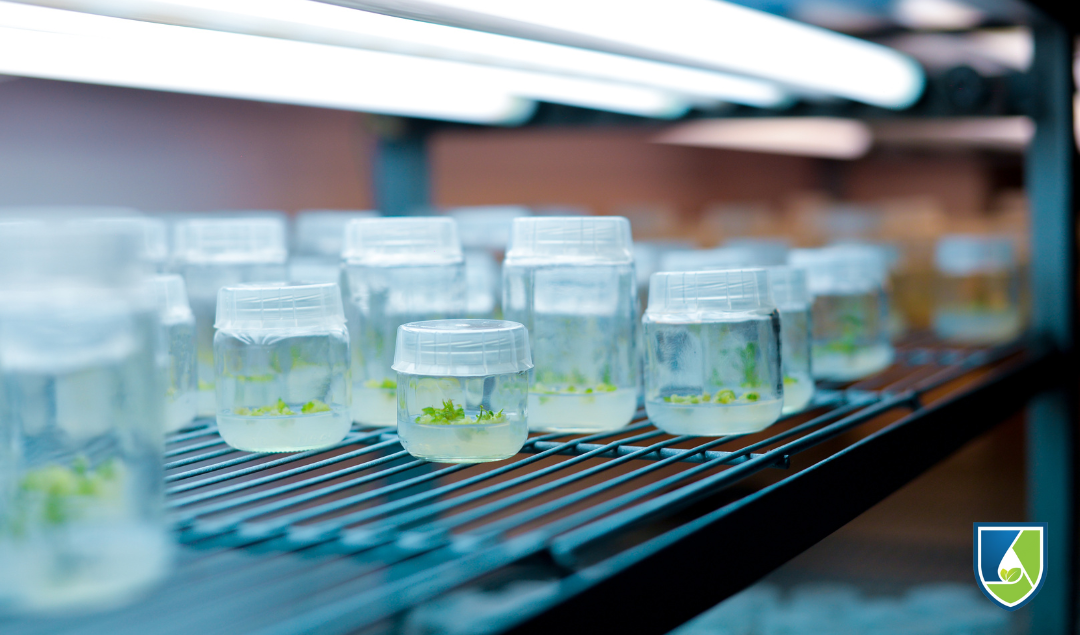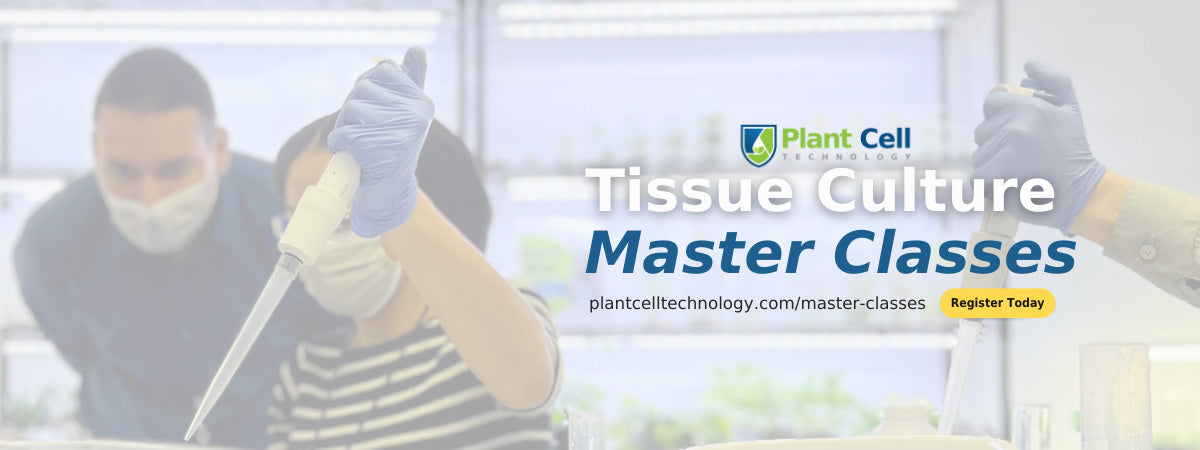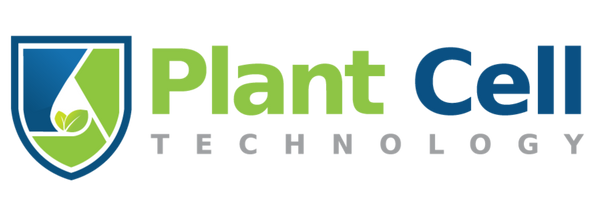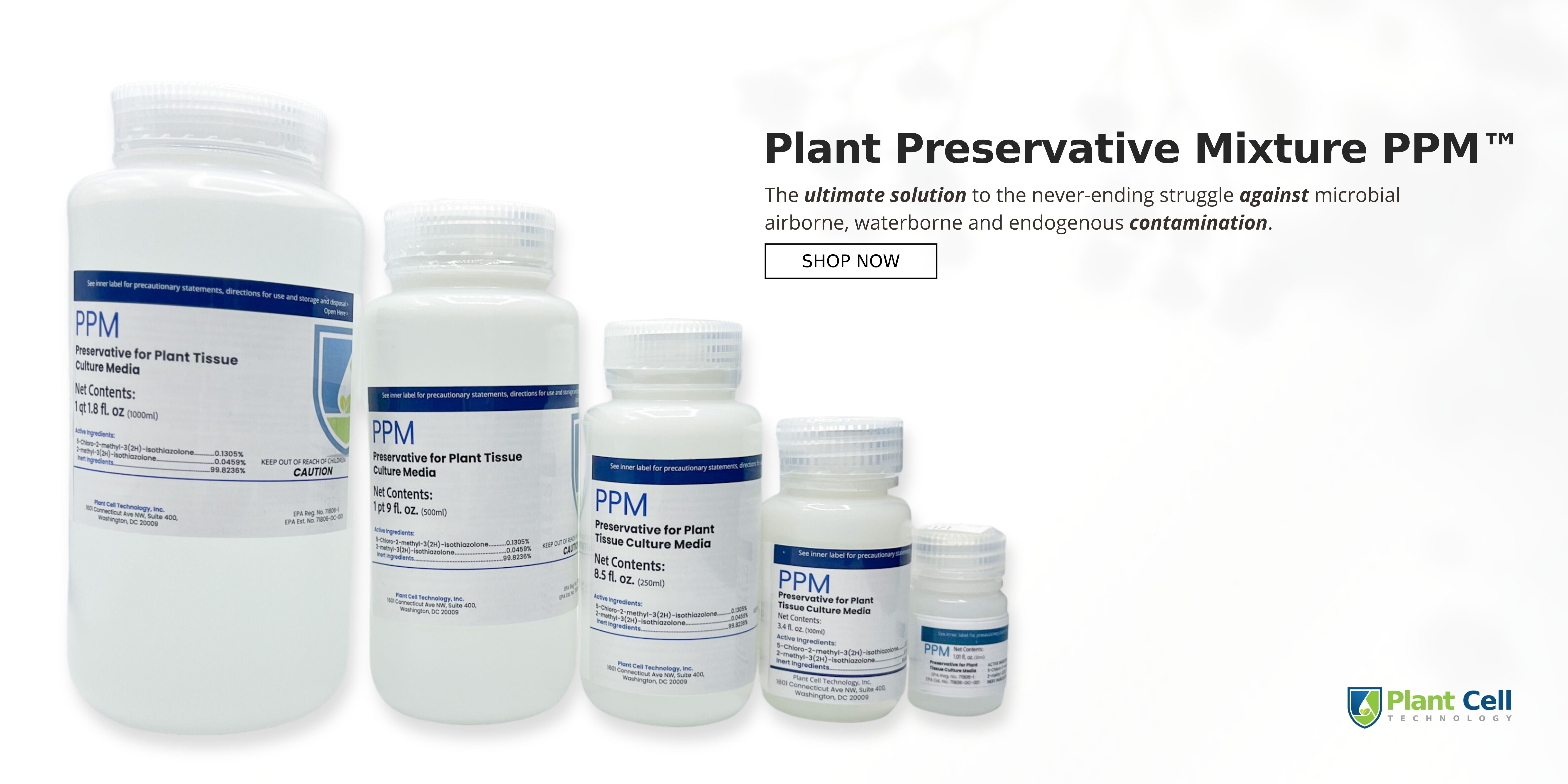
How Tissue Culture Can Help Your Infected Strains!
As a content and community manager, I leverage my expertise in plant biotechnology, passion for tissue culture, and writing skills to create compelling articles, simplifying intricate scientific concepts, and address your inquiries. As a dedicated science communicator, I strive to spark curiosity and foster a love for science in my audience.


What if the plants you're cultivating become infected?
How do you plan to grow them on a large scale without risking further infections? What steps will you take to eradicate the infections and ensure the robust growth of your plants?
Tissue culture is a popular technique among agriculturists or horticulturists because of the numerous advantages it offers. It helps culturists to mass produce disease-free plants, conserve important strains, and produce haploids. Tissue culture involves the extraction of small, healthy plant tissues, which are then sterilized to eliminate any existing contaminants.
These tissues are subsequently placed in a nutrient-rich culture medium under controlled conditions, allowing them to regenerate into complete, disease-free plants. This method not only provides a means to rescue infected strains but also ensures the robust growth of plants on a large scale while minimizing the risk of further infections.
The precision and sterility inherent in tissue culture make it a powerful tool in the arsenal of agriculturists and horticulturists, specifically addressing the challenges of infections in plant cultivation.

What is Tissue Culture?
Tissue culture is a technique in which only a few or single cells are used to regenerate the whole plant. The process utilizes any parts of the plant including leaf, stem, roots, embryo, or seeds to grow into a whole plant. The plant is maintained in a lab environment until all organs are regenerated and then it’s moved to the greenhouse for acclimatization. So, the process of tissue culture commonly involves four steps:
- Initiation stage: It involves cutting the explant from the source plant, surface sterilizing it, and then placing it on the medium to start callus formation.
- Multiplication stage: It involves induction of shoot formation from the formed callus. This stage requires cytokinin for the proper development of stems.
- Rooting Stage: It involves the regeneration of shoots from the shoots. In this stage, auxin is used to induce adventitious roots formation.
- Acclimatization Stage: In this stage, plantlets are moved to the greenhouse for acclimatization and maintenance before they move to the field.

What Are The Advantages of Tissue Culture?
Tissue culture, a preferred method in plant propagation, offers numerous advantages. It facilitates rapid plant multiplication, ensures year-round production, and generates disease-free plants by eliminating pathogens. Its space-efficient nature suits urban agriculture, and precise environmental control optimizes plant growth. The significant advantages of the tissue culture technique is as follows:
- It allows a large number of plants to grow in a small space.
- It allows mass production of plants.
- It helps to grow plants on the verge of extinction or endangered species.
- It helps to produce disease-free plants.
- It allows it to produce hybrids of plants or to grow haploid plants.
- It maintains the genetics of the plant. If you would like to grow a plant only for specific characteristics, you can easily do it by using tissue culture methods.
Can You Regenerate A Disease-Free Plant From An Infected Strain Using Tissue Culture?
Yes, you can do it! However, it's not a good idea to use that plant for your process, especially when the plant is severely damaged by the pathogen. If you observe any kind of infection, you can immediately proceed with the process of tissue culture to get rid of them. You can do this by using the meristem culture or auxiliary node culture technique. One more thing that you can do to avoid pathogens from spoiling your cultures is by proper surface sterilization of explants and carefully removing the dead tissues.
Through carefully controlled conditions, the plant tissue can regenerate and grow into a complete plant while being free from the original infection. Tissue culture's precision and sterility make it an effective tool for rescuing and propagating plants that may be compromised by diseases in conventional settings.

Meristem Culture Technique
Meristems are undifferentiated cells with the capability to divide throughout life. They are located in several plant organs including root (root apical meristem) and shoot (shoot apical meristem). Based on their location, they are categorized into three groups: apical meristem, intercalary meristem, and Lateral meristem. Why shall you use meristem?
Meristems have the capability to differentiate into different other tissues and also because they are undifferentiated, it makes them a stranger to attacking contaminants including viruses. They take time to infect plants. And, because meristematic tissues are themselves free from any contaminants, they are considered safe explants for tissue culture processes. And that's how they help culturists to eliminate viruses from their chosen strain and produce disease-free plants.
The majority of meristem cultures are essentially shoot-tip cultures. One more point to be noted is that different purposes of tissue culture require different sizes of nodal explants. The only exception where the size of the explant is out of concern is the process of micropropagation. The shoot tips are cut into fine pieces to obtain more than one plantlet from each shoot tip. After this, the explants are transferred to Murashige & Skoog media (for the majority of species). To remove endophytic contaminants you can use fungicides or antibiotics.
Unlocking the Contamination Conundrum: Are Antibiotics the Optimal Solution?
Though antibiotics are quite commonly used in tissue culture space, they do not target a range of contaminants. Further, some microbes might develop resistance against them over the time and attack your plants. You may also be aware that antibiotics are not good for the health of tissue culture plants. They negatively impact the growth of plants and alters their genome. So, what should one do in this case? The best alternative to antibiotics and fungicides is the Plant Preservative Mixture (PPM™). It’s an all-rounder player when it comes to avoiding contaminants from cultures. It can prevent any contaminant whether it’s airborne, waterborne, endophyte, or came through human contact. You only require 1-2 ml of PPM™ per liter of growth media.
So, to summarize you just have to do these three things if your strain is infected and you want to regenerate the plant:
- Use meristem culture technique to obtain disease-free plants.
- Perform proper surface sterilization of explants and remove all dead and damaged tissues.
- Use PPM™ in your culture media to avoid any type of contaminants from spoiling your cultures.

Plant Cell Technology—Your One-Stop Shop For All Things Plant Tissue Culture
Revolutionizing the industry, Plant Cell Technology offers a range of exceptional products and services to optimize your workflow. Our store features essential items, including all essential plant growth hormones, MS media, agar, gellan gum, Plant Preservative Mixture™ (PPM™), culture vessels, and Biocoupler™, as well as additional supplies like masks.
Beyond providing materials, our consultation services aim to deliver instant solutions to your tissue culture challenges. If you're seeking expertise to enhance your skills, our tailored tissue culture master classes provide comprehensive learning directly from the experts.
These courses encompass a wide range of topics, covering fundamental concepts and hands-on experiences, such as explant and media preparation, multiplication, rooting, and acclimation of plants.
Additionally, the curriculum includes advanced techniques like shoot apical meristem and synthetic seed production, ensuring a comprehensive learning experience to make you proficient in the industry. Taught by tissue culture experts with 10-30 years of experience, our masterclasses not only educate on tissue culture concepts but also share personal success and failure stories, providing valuable insights for your journey.
Ready to advance your tissue culture skills? Waste no time and enroll in your preferred tissue culture master class today to enhance your expertise in the field!
References
Blog Categories
View by Level
Popular Blogs

How Samantha Bridges the Gap Between the Nursery and the Lab
The Introduction Building a tissue culture program from the ground up requires more than just scientific knowledge—it requires the grit...
Read More
Understanding The Synthetic Seed Technology
Introduction Let’s be honest: traditional plant propagation can be a logistical nightmare. If you’re working with recalcitrant species—those stubborn plants...
Read MoreSubscribe to Our Newsletter








Join the conversation
Your email address will not be published. Required fields are marked